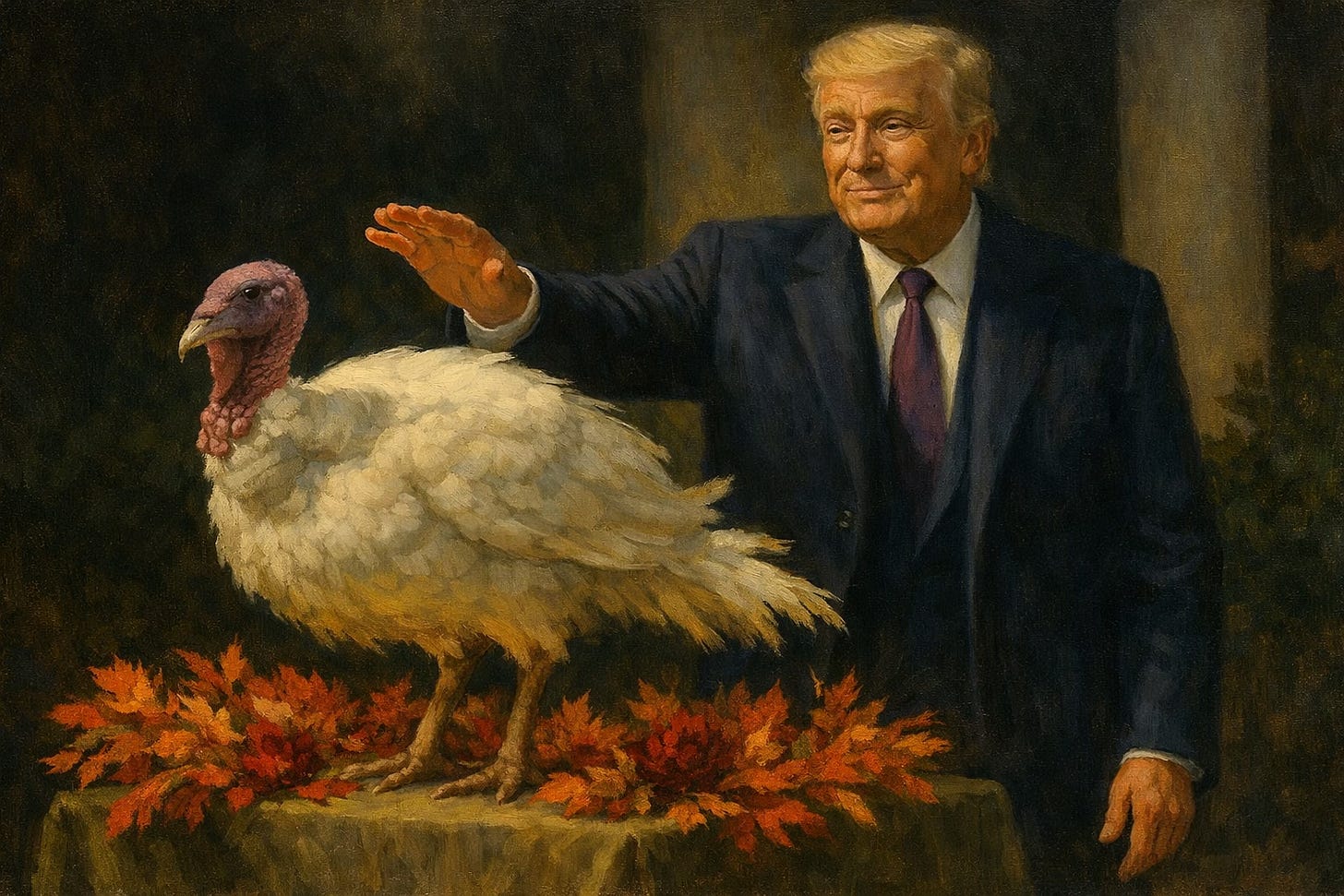Cash and Clemency: The Pardon Economy
Inside the pay-to-play system where donations buy freedom and victims lose billions.
Executive clemency is supposed to be an act of grace. In 2025, it looks more like a Sotheby’s sale where the lot is a federal conviction and the paddle price starts around seven figures.
Trevor Milton lied to investors about electric trucks that did not work. A Nikola prototype was filmed rolling downhill to look like it drove itself. Classic securities fraud. Four years in prison. Straightforward case.
Then Milton and his wife cut a check for roughly 1.8 million dollars to Donald Trump’s political operation less than a month before the 2024 election. Trump returns to office, Milton gets a full pardon, and suddenly the story becomes one of supposed political persecution.
Meanwhile, prosecutors had been seeking something like 660 million in restitution. Pension funds, retirees, regular investors who believed the basic promise that markets punish liars. That restitution evaporates. The investors are still out the money.
Milton keeps freedom and fortune. That is the business model.
For years, the Office of the Pardon Attorney inside the Justice Department acted as the main gate. File paperwork, wait years after release, show remorse, prove good conduct. Slow and often unfair, but at least it had rules.
Trump walked around that structure.
While thousands of petitions from people with no political juice pile up in the OPA database, clemency flows through a different pipeline. Lobbyists, former aides, and fundraisers who sell access instead of arguments. Small business owners and veterans obey the old process. Donors and friends call Mar-a-Lago.
Fred Daibes, a real estate developer convicted of bribing Senator Bob Menendez, hired Javelin Advisors. The firm employs Keith Schiller, Trump’s former Oval Office body man. Javelin registered to lobby on a single issue: executive relief. Daibes’s reported first-quarter payment landed around a million.
Other familiar names work the same angle. George Sorial. Roger Stone. Clients like Binance founder Changpeng Zhao and insurance executive Greg Lindberg do not need brilliant legal theories. They need someone in the dining room when clemency comes up over dessert.
What they are buying is the President’s attention. The market rate looks comfortably north of seven figures.
This is not random. This is institutionalized. It has a de facto fee schedule.
Take Paul Walczak, who ran nursing homes and committed a large tax fraud. Prison time and millions in restitution on the line. While his case was still live, his mother, Elizabeth Fago, went to a Mar-a-Lago fundraiser dinner with a reported price tag around a million dollars.
Maybe every cent changed hands, maybe not. The reporting is messy by design. The sequence is clear enough: high-priced access at the President’s private club, followed by a pardon that erased both the prison sentence and the restitution.
The goal is not always a briefcase of cash under a table. The goal is access at the moment decisions are made.
And the setting matters. This is not a public hearing room. It is a private residence used as a political fundraising venue, where the cost of admission maps suspiciously well onto the chances of executive intervention. A VIP room for justice, where clemency feels like a luxury product.
Here is where the law twists.
Federal bribery statutes want proof of a quid pro quo, money in exchange for an official act. Pretty simple. But the Supreme Court’s ruling in Trump v. United States handed presidents absolute immunity for actions within their conclusive and preclusive constitutional authority.
The pardon power sits right there in Article II. Core presidential muscle.
So even if prosecutors could show that money flowed for a pardon, the act itself is shielded. The decision cannot be criminally prosecuted. The act cannot be treated as evidence. Investigators are told to look away from the very thing that matters.
The constitutional armor meant to protect presidents from political harassment now doubles as cover when a president turns a core power into a cash register.
Justice Sotomayor warned about this in dissent. If a president misuses official authority for personal gain, the criminal law that binds everyone else may not apply. The remedy becomes political, not legal. Congress can investigate, hold hearings, impeach.
Criminal prosecution, though, is effectively blocked.
So the only real checks left are public outrage and whatever spine exists in Congress. Given current polarization, that is a thin reed to lean on.
Look at Ross Ulbricht. Silk Road’s founder ran a darknet marketplace for drugs, weapons, and worse. Convicted of running a continuing criminal enterprise, drug distribution, money laundering. Two life sentences plus more time for good measure.
On Trump’s second day back in office, Ulbricht received a full and unconditional pardon. The order did not just free him, it erased a forfeiture judgment in the neighborhood of 184 million dollars.
Senator Tim Kaine pointed out the absurdity: Trump had declared a national emergency over drug trafficking right before pardoning a convicted online drug kingpin. The deeper harm is financial. That money was supposed to be clawed back for taxpayers. The courts imposed it.
The executive wiped it out.
Same pattern as Milton. Hundreds of millions in potential restitution, gone. Same as Walczak. Millions owed to the government, gone.
Full pardons do not just open prison doors. They wipe out financial accountability.
Victims are left holding the bag. Nikola investors, no restitution. Taxpayers who funded the Silk Road dragnet, no asset recovery. The people who successfully bought clemency keep their gains.
The judiciary spends years building a protective wall. The executive walks in with a pen and knocks it down.
That is state-sanctioned secondary victimization.
Defenders argue that these pardons correct prosecutorial overreach. Milton supposedly targeted for his politics. Ulbricht framed as a martyr to internet freedom. Critics of the drug war are not wrong about sentencing being excessive. Federal time can be brutal and uneven. Some prosecutors absolutely ride political waves.
If clemency were really aimed at fixing those injustices, the pattern of mercy would look different. The beneficiaries would be low-level drug offenders, people railroaded by junk evidence, veterans crushed by rigid sentencing guidelines. The map would light up around the powerless.
Instead, the mercy map clusters around the connected.
Political allies like Rudy Giuliani and Mark Meadows, rewarded for trying to overturn an election. A disgraced congressman like George Santos, out after a sliver of a fraud sentence. White-collar crooks who can afford an introduction to the right consultant.
Meanwhile the Office of the Pardon Attorney sits on thousands of petitions from people without lobbyists or fundraising hosts. Those petitioners followed the posted rules.
Santos serves three months. Walczak pays nothing. Ordinary applicants die waiting.
The system is not correcting injustice. It is validating privilege.
Bill Clinton’s last-day pardon of Marc Rich, the fugitive commodities trader dodging dozens of tax and sanctions counts, still reeks. Rich’s ex-wife had poured more than a million into Democratic causes, including the Clinton foundation project and Hillary Clinton’s Senate campaign.
The scandal earned a name, Pardongate. Even Clinton allies recoiled. A federal investigation led by James Comey found no crimes, but the smell never really faded.
The difference now is scope and shamelessness.
Clinton’s mess landed as a final-day firestorm, widely criticized across parties. Trump’s clemency machine functions as a recurring feature of executive power, defended as righteous rebellion against the swamp. The financial lines are more direct too. Not just checks to foundations or campaign committees, but six and seven figure payments to lobbyists and fundraisers whose stated product is executive relief.
And unlike Rich, today’s beneficiaries routinely see massive restitution and forfeiture orders vanish, which means concrete damage to victims and taxpayers.
If wealthy and well connected, federal law starts to look optional. Convictions become negotiable. Court-ordered restitution slides into the maybe column. Commit securities fraud, pay the right intermediaries, and the executive branch will happily nullify the courts.
If not wealthy and not connected, the law sits like concrete. No lobbyist, no paddle, no auction.
My Open Tabs:
Clemency Grants by President Donald J. Trump (2025-Present)
Presidential Pardons: Overview and Selected Legal Issues
Super Rich? In Prison? Lobbyists Want to Help Score You a Trump Pardon.
The Bombshell Inside Trump’s $1.3 Billion Pardon Market
Trump has granted clemency to 17 corrupt politicians—so far
Bill Clinton’s Last Outrage; The President’s Defenders Feel Betrayed by His Pardon of Marc Rich



